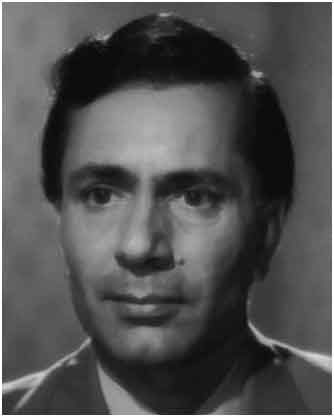
Balraj Sahni took art of acting simply to another dimension in his time, reminiscent of a Michelangelo. It is hard to find an adjective to do justice to his sheer sensitivity which reached spiritual depths or realism in his characters. He did not make the impact of Dev Anand,Raj Kapoor or Dilip Kumar but in championing or portraying the common man he overshadowed everyone.No one so deeply penetrated into the character of an opressed peasant as Balraj .His art had the fragrance of roses blooming, the intensity of thunder and ebb and flow like continuous change of currents in sea. The facial expressions he portrayed could express the effect of an Autumn,winter,summer and a spring, like the flux of tones in musical symphony. From depths of despair, the very next moment he could be brimming with joy. Balraj on screen was as natural as the fluttering of a leaf or ripple of water in a stream. In joy he was like a lotus in full bloom while in sadness he would look like a t leaf dying away in the coldest of winters. Rarely did you see an actor hardly look as though he was acting and was the real character in the magnitude of Balraj. I can never forget how he even lived with the slum dwellers in Bombay and Rickshaw pullers in Calcuta to infuse realism to his role. His creativity reached poetic proportions. No actor placed so much effort in living the very life of the character he played. In his day no film actor so much projected virtuosity as Balraj.Above all he was one of the finest human beings, treating the common people like his own brothers. His human touch was unsurpassed in Bollywood.Rarely did any actor in Bollywood exude the quality of humanism to such a scale.
EVALUATION OF BALRAJ SAHNI
It is my regret that Sahni did not more radically confront the socio-political order by maintaining strong friendship with Indira Gandhi and being a vocal supporter of India in the war with China in 1962.Balraj took no radical stand against revisionism of the erstwhile Soviet Union. Personally I am upset that he was not critical of India and condemned China as the agressor in the 1962 war.Infact his relations with Indira Gandhi severed his relations with the Communist Party of India. No doubt he was vocal opponent of Hindu communalism, even coming out on the streets in the 1970’s in Mumbai. Perhaps it was the inherent weakness or failure in the left movement itself to win over artists like Balraj who were earlier associated with the Indian Peoples Theatre Association.
I was most touched to read the revelations of his son Praiksheet of how when interacting with villagers on a holiday he would behave as though he was one of them .It was also sad to read about the traumas of his personal life with the marriage of his daughter.His personal autobiography would be most touching for anyone,projecting the inner evolution that shaped a man’s life.
Perhaps we did not see Balraj enacting a range or roles like Sanjeev Kumar,,Naseeruddin Shah or Dilip Kumar ,with his acting not utliised in mischief and comedy, or even a negative role. They all played more diverse characters than Sahni.We may have seen Balraj too much in ‘goody goody ‘ roles not reflecting sheer rawness. I also feel Balraj hardly played the role of a crusader for justice like stars as Dilip Kumar ,Dharmendra or later even Naseeruddin Shah.Still debatably for pure sensitivity and projecting a common man he even surpassed the likes of Dilip Kumar. I have no doubt even in this day and age his acting prowess was so great that he would have blossomed, and not been a fish out of water. I would have loved to have witnessed him in theatre today, projecting the impact of liberalization and globalisation. Still in his own subtle manner he had the very element of liveliness of any great star. Unhesitatingly I rank Balraj amongst the four best Indian actors of all time, with Dilip Kumar,Sanjeev Kumar and Naseeruddin Shah.He may have left us early at the age of sixty but his memories still shimmer like an inextinguishable flame.
FILMS OF BALRAJ SAHNI
In my view his five best acting performances were in ‘Do Bigha Zameen’, ‘Seema’, Bhabi ki Chidiya’ and ‘Garam Hawa.’
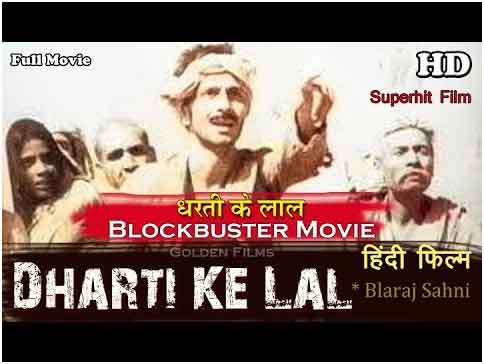
This year we commemorate the 75th anniversary of ‘Dharti Ki Lal.’,(1946) where Sahni was part of a plot which portrayed the great famine of 1943 .In 1949, Dharti Ke Lal became the first Indian film to receive widespread distribution in the USSR. The movie was critically acclaimed for its scathing view of notorious Bengal famine of 1943 in which over 1.5 million people died. It is considered an important political film as it gives a realistic portrayal of the changing social and economic climate during the World War II.With great mastery his role projected the misery of the farmer and how circumstances shaped their lives. A classic in projecting the turbulence of the 1943 famine and the collective spirit of rebellion. In junctures Balraj gives illustration of his touches of genius in getting into the very skin of a peasant..Balraj does not carry the film on his shoulders but plays an important part in crystallising the theme.
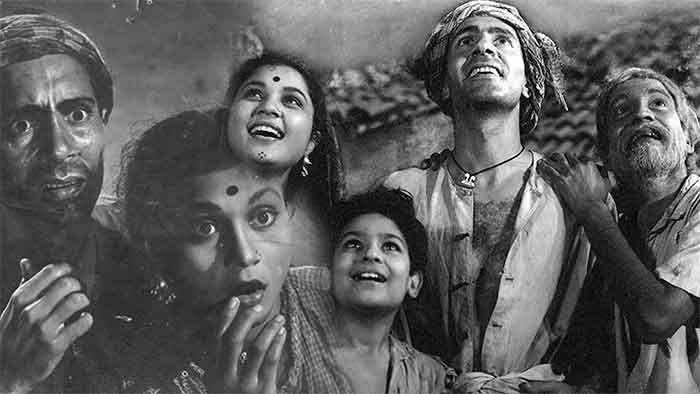
No doubt his best ever acting performance was in ‘Do Bigha Zameen’ (1953)where enacting Shambu Mahato he portrayed the opression of the feudal and capitalist social order and how it shaped the life of a peasant. His acting nuances had touches of sheer genius. Rarely have I ever seen such blending of joy and despair as in peasant on screen, or an artist so immersed into the character. His acting is classical example of the neo-realism in the Italian film ‘Bicycle Thief. ‘In the court when pleading for innocence he reveals morality in regions of divinty.When reprimanding his son in the city of Calcutta he reveals bewilderness as though a spell was cast over him from the divine. When pulling a handcart for sheer survival his face reveals intensity at scale rarely ever seen like coal fire burning .After hearing about the trauma his wife faces grief is taken to magnitude of a cloud bursting. In the final scene when he loss his land and is rejected his face reveals despair of a funeral procession, defining the light of lakhs of peasants even today. One almost feels he played the part of three different persons in the film.
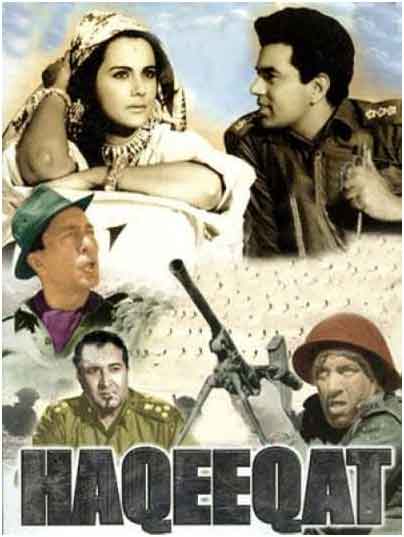
In ‘Haqeeqat'(1964) in certain scenes with actress Priya Rajvansh he takes sensitivity to regions of the divine, when conversing. His tenacity is simply unforgettable when marshalling his troops during the Sino-Indian war, reminding one of a boulder weathering a storm.
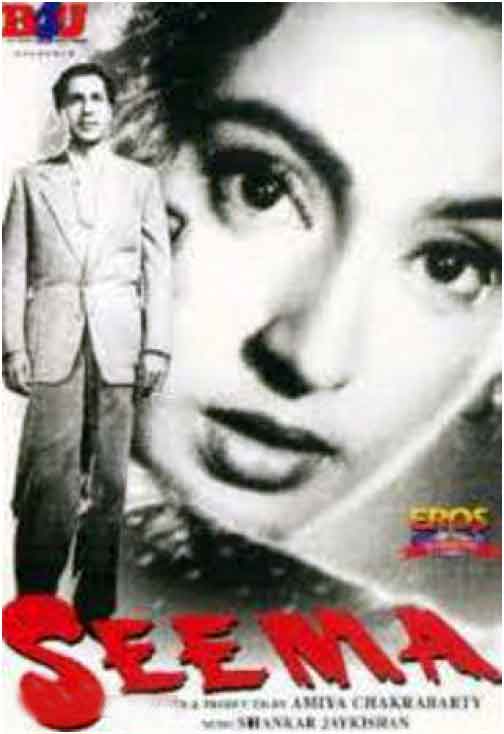
In ‘Seema’ (1955)his handling of Nutan in an orphanage as Mohan takes the character of virtuosity or compassion to a scale rarely surpassed.I can’t forget his sheer calmness even in moments of turbulence and his heart touching love. His role reveals spiritual overtones,particularly in the songs like ‘Tu Pyar ka sgar hein ‘ and ‘Kaha jaun main o janewali’.Rrealy seen more sudtle projection of love or sensitivity at such a depth.
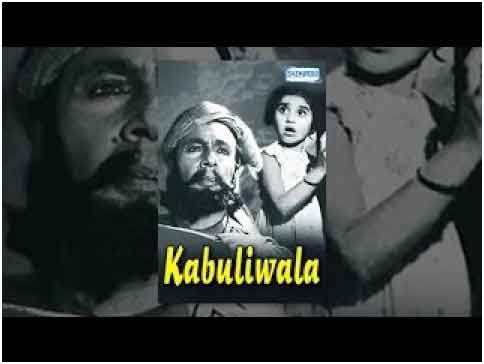
In ‘Kabuliwala’ (1961) he literally touches the core of the soul of a viewer, depicting the true plight of the Kabuli people.he story is of a Pathan peddler from Kabul, Afghanistan who comes to Calcutta (present day Kolkata), India each year for selling dry-fruits and while living in India he becomes friends with a five-year-old girl Mini from a middle-class aristocratic family. The main theme of this story is filial love—the deep love that fathers have for their children. In the story we encounter three examples of filial love—the author and his daughter Mini; the Kabuliwala and his own daughter in Afghanistan; and the Kabuliwala and Mini. In this story Kabuliwali comes to India every year to sell dry-fruits and to meet this girl named Mini. The simple story of Kabuliwala is about the affection between Abdur Rahmat Khan, an Afghani immigrant dry-fruit-seller in Calcutta and Mini, a girl who he imagines as his child-figure in memory of his daughter, Amina (Baby Farida), left behind in Kabul.Simply heart touching to witness the scenes of the Kabuliwala with the child when he comes to India, taking playfulness to a height. He gives a tragic story its shades of life ,infusing joy of a subtle type. Despair and innocence is portrayed in depths of artistry rarely touched. Rarely seen an actor immerse so much into the very skin of a character.Sahni looked like a real Kabuli wala,imitating mannerisms to perfection.
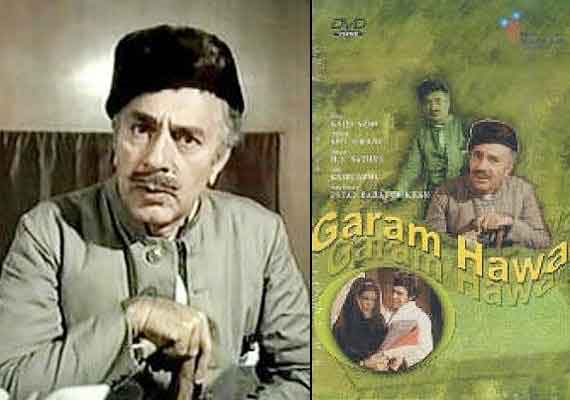
In ‘Garam Hawa’ (1974) he championed secularism amidst the gravest circumstances, challenging communal currents at their hardest point. I challenge any actor to project such purity as a crusader for secularism, simply not flinching to any threat .Balraj Sanhi enacts role of businessman Salim Mirza who is as relentless as boulder defying a thunderstorm ,in refusing to yield and leave India to go to Pakistan.The movie would be more relevant than ever in the times toady with Saffron Communlaism at its crescendo.n ‘Do Raaste’ he brilliantly portrays the outlook of a man with morals .in contrast with those in pursuit of lure.Sahni’s role could crystallise the entire theme for which the plot was woven. I admired his sheer restraint, even in the most turbulent times .Balraj Sahni as Salim Mirza gives what many film experts consider the one single-most flawless performance in the history of Hindi cinema. Quoting India TV”He gets into the skin of his character and inhabits the inner-most recesses of Salim Mirza’s soul. You really don’t see Balraj Sahni on the screen. You see this Muslim patriarch of a disintegrating family who never stops believing his God even when He seems busy elsewhere.”
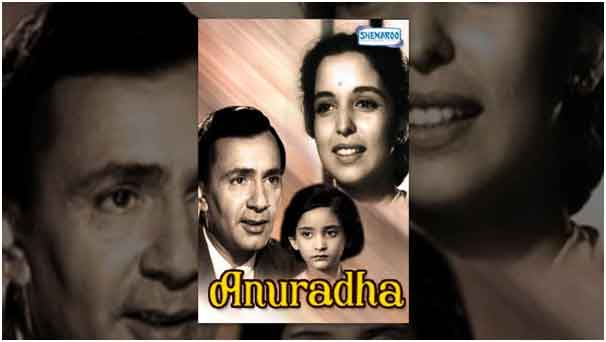
In Anuradha (1960)although understated he makes an important contribution towards integrating the theme of a plot woven.He enacts role of Dr Nirmal Chpwdhury who is in love with Anuradha enacted by Lela Naidu.Enacting Dr Nirmal,Balraj takes idealism and compassion to magnitude rarely demonstrated. To me not his best acting performance but amongst the best films he ever played a part.Dr Nirmal’s is sympathy towards his lover Anuradha when telling her not to share his hard life , when saving life of Deepak after an accident ,who was to marry her., when not succumbing to lure of a better life in the city to stay in the village and serve the people and finally parting with Anuradha to giver freedom for her pursuit, that is music. takes morality to heavenly proportions.
In Bhabi ki Chidiya(1961)he portrays his character with characteristic sensitivity ,intervening in crucial junctures like a thunder shower emerging ,to give the film its theme. His sheer stillness and detachment here is truly remarkable.Role of Sahni is like the conductor of an Orchestra.Geeta (Meena Kumari) is married to Shyam (Balraj Sahni), but is unable to bear children. Orphaned as a youth, Mohan (Sailesh Kumar) is raised by his elder brother Shyam and his wife, Geeta, who offers the boy motherly love and devotion. Mohan marries Prabha (Seema Deo), Prabha is from a wealthy family and her life is ruled over by her dominating mom (Durga Khote). Mohan’s youthful bride becomes jealous of his loyalty to his family. Misunderstandings arise to such an extent that Prabha moves out of her home, and back to her mom’s. She gives birth to a baby, and not even her husband comes to visit her or to see the baby. But when the infant falls ill, Prabha must set aside her apprehension and learn to trust.
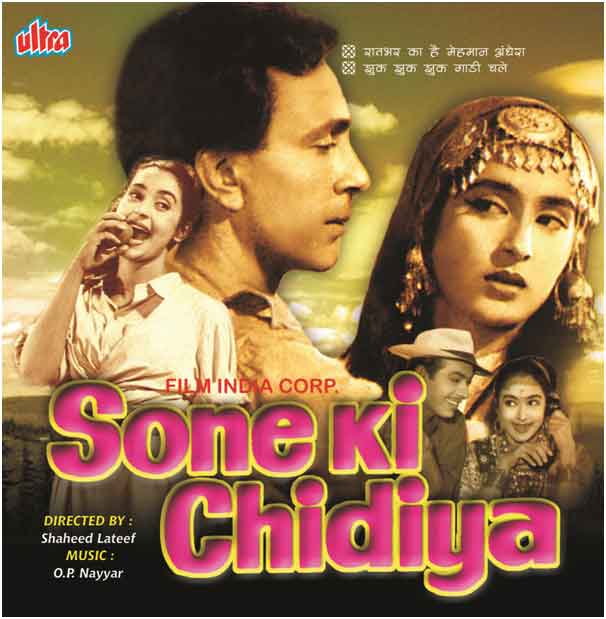
In Sone ki Chidiya (1958)he creates an amazing chemistry with Nutan,playing an instrumental role in bringing the very best out of her. In certain scenes he literally steals the thunder with his acting nuances.
Harsh Thakor is a freelance journalist.Toured India,particularly Punjab .Written on Mass movements ,,Massline,Maoism on blogs like Democracy and Class Struggle and frontierweekly .An avid cricket lover too who has posted writings on blogs like Pakpassion Indian Cricket Fans and Sulekha.com [email protected]
GET COUNTERCURRENTS DAILY NEWSLETTER STRAIGHT TO YOUR INBOX













































